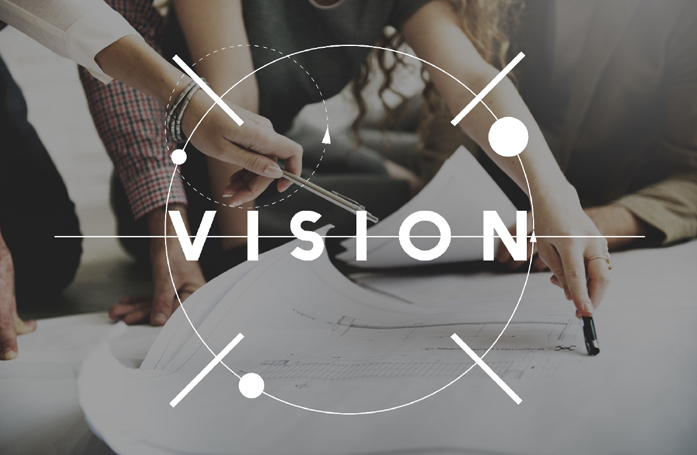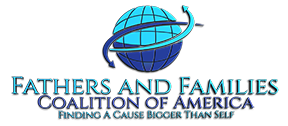
OAR Leadership Institute™ Activities & Impact
Program Overview

The OAR Leadership Institute, a part of the Fathers and Families Coalition of America, offers a unique program designed from an introspective strategic perspective. It is structured around specialized modules and utilizes the 'I Am Going Anyway' manual.
This program provides a distinct opportunity for executives, senior managers, managers, and forecasted leaders to participate in a 3-day intensive leadership development training. The sessions conclude with the option to develop a leadership plan and participate in an executive coaching session to support the goals established by each participant.
The Fathers and Families Coalition of America OAR Leadership Institute offers a comprehensive leadership development training, including at least 20 hours of training, approximately five hours of participant takeaway work, and an executive coaching session. Our curriculum is designed to maximize the potential of future leaders, enhance team capacity, and foster leadership development.
OAR Leadership Institute™ — Building Leaders Who Lead With Love

FFCA Model: Four-Part Institute
The competency-based curriculum of the OAR Leadership Institute focuses on developing leadership capacity, fostering meaningful relationships, and enhancing emotional intelligence. It integrates advanced skills and knowledge essential for professionals working with families, children, and communities.
The FFCA Four-Part Institute is structured to provide a dynamic learning experience through the following key components:
- DiSC and Leadership: Using Your Personality Strengths for Succeeding in Your Leadership Style
- The Pinnacle of the Pyramid Building Blocks of Success: Developing self-leadership and building core leadership values
- A New Story - Positive Goal Setting for Leadership Legacy Plan: Crafting a personal and professional leadership vision
- Responding Leadership Through Increased Emotional Intelligence: Strengthening emotional awareness and relational leadership effectiveness
The Institute culminates with Pulling It All Together — Closing Leadership Development Plan, where participants synthesize their learning to design an actionable leadership plan aligned with their purpose and professional goals.
OAR Leadership Institute™ — Advancing Leadership Through Introspection and Action
The FFCA Framework of New Leadership Development

The OAR Leadership Institute blends proven leadership skill development, emotional intelligence training, and visionary goal setting with the dynamic application of the DiSC model of human behavior. This comprehensive approach equips participants with tools to enhance personal and professional leadership effectiveness.
Participants engage in guided self-exploration and collaborative learning that deepens their understanding of leadership strengths, growth areas, and relational dynamics.
The framework is structured to progressively build leadership capacity through:
- Module One: Understanding Yourself Better to Understand Others — DiSC Personality Training
- Module Two: The Pinnacle of the Pyramid — Building Blocks of Success
- Module Three: Developing a New Story — Positive Goal Setting blended with Ikigai Approaches
- Module Four: Healthier Relationships — Emotional Intelligence Training
The program fosters a leadership philosophy grounded in courage, integrity, and service — inspiring participants to lead with intentionality and compassion.
OAR Leadership Institute™ — Framework for Purpose-Driven Leadership
Jump Into A New Destiny

Leadership Development Activities & Workbook Highlights
Welcome to the heart of the OAR Leadership Institute™.
Here, the Workbook is not an assignment — it is an altar.
Here, each page is not a task — it is a carving of the blade of your oar.
Here, each word you write is a stroke into new waters.
You do not check a box — you forge a legacy.
Leadership Development Activities & Workbook Highlights serve not to instruct — but to awaken. They are crafted to move you from reflection into purpose. From being a bystander to becoming the leader whose very life is the lesson.
Within this Institute, these activities become your forge. The place where iron sharpens iron. The place where leaders are not appointed, but developed. The place where the I Am Going Anyway™ spirit becomes your ethos.
Here is the rhythm of the work you will do:
- "I Am" — Your opening invocation. You will write it. You will own it. You will live it.
- DiSC Personality & Emotional Intelligence Assessments — Not to be analyzed, but to be embodied. To understand yourself so deeply that you begin to understand others with compassion.
- Victory Statements & Audio Flashcard Practices — You will record your own voice, declaring triumphs and truths you once doubted.
- Leadership Development Plan Components — A map of who you are becoming. A blueprint for the legacy you are building.
- Meet Me In Ten Years Vision Planning — You will write as if the decade is already yours. Because if you cannot envision it — how will you row toward it?
- Life Wheel and Ikigai Diagram Creation — The visual symphony of your passions, purposes, vocations, and profession aligned in balance.
- Emotional Intelligence and Mindfulness Journaling — The space where stillness meets strategy. Where reaction becomes response. Where awareness becomes wisdom.
- New Story of You and Compassionate Leadership Exercises — You will script a new narrative, not as a fiction, but as a forecast of the leader you choose to be.
And through it all, you will learn: Leadership is not given — it is grown. Authority is not taken — it is earned. Legacy is not spoken — it is lived.
The Workbook is your companion. The Institute is your community. The Purpose Within is your guide. The OAR is in your hands. The waters ahead are unknown. And yet — I Am… I Am… I Am Going Anyway.
OAR Leadership Institute™ — Where Leaders Craft Their Legacy
Module One — Measurable Activities

Welcome to Module One. See, before you can lead them — you gotta know you. Before you tell somebody how to build a bridge — you gotta build your OWN foundation.
And in the OAR Leadership Institute, we don’t just spit theories — we live this work. Every page you touch, every question you answer, every insight you claim — it’s another brick in your legacy. Porque mi gente — leadership ain't just about the suit. It’s about the corazón. The alma. The mind and the soul aligned.
Module One — it’s that deep dive. You about to meet you on a whole new level. Let’s break it down:
- Take that DiSC Assessment. Look in the mirror. Understand how you move, how you groove, how you vibe in this world.
- Step into the Eight Leadership Personality Dimensions. Which streets do you own? Which avenues you avoid? Learn them all.
- Natural vs. Adaptive — yeah, we got masks. But here? You gon’ learn when to drop ‘em, when to wear ‘em with wisdom.
- Find your Ideal Environment. Where you flourish. Where your spirit expands. Stop shrinkin’ to fit rooms too small for your greatness.
- Core Values — identify them. Tattoo them on your leadership style — metaphorically or for real.
- Unmask your relationship blockers. Heal so you can lead whole.
- Peep your styles: Pioneering. Energizing. Affirming. Inclusive. Humble. Deliberate. Resolute. Commanding. (You got some of all these in you — time to learn when to bring which to the table.)
- Develop a plan: How you gon’ sharpen EACH quadrant? Each dimension? 'Cause being aware ain't enough — we bout that action.
- Write your Leadership Plan — based on YOUR truth. YOUR story. Not some template.
- Record Victory Statements — your voice, your power. Spoken into existence, captured forever.
- Choose your mentors and accountability fam. You ain’t rowing this boat alone — no leader does.
- List your barriers. Own ‘em. Then outline how you gon’ smash 'em.
- Define your success markers. How will YOU know when you’re growing? (It ain’t always the title or the check.)
- And finally — in our 'Pulling It Together' session — you gon’ reflect, connect, and project who you are becoming. Not someday. Not maybe. But now. Today. In this moment.
So when we say Module One? We ain’t talking about a cute little first class. We talking about breaking down, building up, and rowing forward with a new oar in your hand — carved by YOU.
This is leadership for the real ones. For the heart-led, the street-wise, the spirit-strong, the life-educated.
Doctorate of Life — Certified in Purpose.
Let’s go. I Am... I Am... I Am Going Anyway.
OAR Leadership Institute™ — Built from La Cultura, The Block, and the Heart
Climbing to Success

Module Two — The Pinnacle of the Pyramid Building Blocks of Success
Ahora escucha… When we say “Building Blocks of Success,” we ain't just talking PowerPoint slides, nah. We talking mortar and brick. We talking stories of resilience. We talking the way Mami stirred the pot with one hand and fixed life with the other. We talking the wisdom of the block, the grit of the Bronx, and yes — the precision of a Harvard dissertation.
See, this Pyramid of Success? You don’t just climb it. You build it — one block at a time. And each block? It got seasoning. It got history. It got your DNA baked inside.
You about to cook this leadership with sofrito AND citations. Let’s break it down — not just what you’ll DO, but what you’ll BECOME:
- Confidence — Because if you don’t believe in YOU, why should anyone follow?
- Skill — Raw talent is a blessing; refined skill is a responsibility.
- Team-Spirit — If you wanna go far, go with your people — your tribe, your crew, your familia.
- Poise — Leaders don’t just act; they embody grace under pressure.
- Condition — Physical, mental, spiritual — this is a leadership marathon. Stay ready.
- Competitive Greatness — Be hungry, stay humble. Compete with yourself daily.
- Industriousness — Put in that WORK. Leadership is earned in the grind.
- Loyalty — To your values, to your vision, to your people. Without loyalty, your pyramid crumbles.
- Alertness — Keep your third eye open. Leaders move in wisdom, not reaction.
- Initiative — Step first. Speak first. Serve first. Leadership don’t wait on permission.
- Enthusiasm — Your vibe leads your tribe. Show up with fire.
- Self-Control — Emotional intelligence is your superpower. Don’t let others write your story through your reactions.
- Friendship — Real connections. Relationships are your leadership currency.
- Cooperation — Unity over ego. Legacy over spotlight.
- Intentness — Laser focus. Know your WHY and row toward it with every stroke.
And through this module, you’ll write: • How you define success in your own life. • The pressure that refines your purpose. • The passion that you will never surrender. • How leadership by love shows up in your walk. • The team spirit you model — even when nobody is watching. • The integrity you carry like a crown.
You’ll create a Code of Conduct — not for the organization — for YOURSELF. You’ll reflect on adversity, on character, on what sets you apart. And when we say “Pulling It Together” at the end of this module — you ain’t just pulling notes. You pulling your whole self into alignment: Boricua heart. Bronx soul. Harvard intellect. Leadership by love.
Because when you step out of Module Two — you won’t just understand success. You will walk it. You will serve it. You will teach it. You will live it.
And yes — we will smell your sofrito in the way you lead. We will read your dissertation in the way you serve. You will be BOTH — and that is the essence of transformational leadership. I Am... I Am... I Am Going Anyway.
OAR Leadership Institute™ — Where Sofrito Meets Dissertation. Where Legacy Is Built.
Module Three — Developing a New Story — Positive Goal Setting Blended with Ikigai Approaches
The Sun Never Sets On Leaders of Excellence

Some of us rode waves long before we ever saw the ocean. Waves of struggle. Waves of pain. Waves of hope. And now — in this chapter — we learn to ride waves with intention, with flow. To set goals not just from the mind — but from the heart, from the soul. From the vineyard of life that aged us well — and now pours wisdom into our leadership.
Module Three — Positive Goal Setting blended with Ikigai Approaches is about planting new vines. It is about writing new pages. It is about saying: "I am not defined by my past — I am refined by it."
Whether you come from the streets of Southeast San Diego… Whether you grew up watching the sun set over the Santa Maria vineyards… Whether you earned your PhD on the Stanford campus or in the hard-earned degrees of life… THIS is your moment to set vision with purpose.
Like a surfer reads the tides — you will read your life’s currents. Like a vintner prunes and waits for the fruit — you will prune habits and grow vision. Like a Merlot that breathes before it pours — you will breathe through this process and pour forth leadership that is bold, complex, and full of character.
Here is the flow of your work in Module Three:
- Create your own Ikigai Diagram — Where does your passion meet purpose? Where does vocation meet mission?
- Map your Life Wheel — What areas are flowing? What needs tending? What needs love and intention?
- Engage in Kintsukuroi exercises — Honoring the cracks that made you more beautiful. You are not broken — you are golden in your repair.
- Establish your Success Starts with Self practice — Weekend journaling to reflect on what ignites your leadership energy.
- Write your Meet Me in Ten Years vision — Not as a fantasy, but as a promise to the person you are becoming.
- Address what holds you back — Because waves will come. We do not fight them — we learn to ride through them with grace and grit.
And as you write this new story, remember: Like a fine Merlot — your leadership is meant to open over time. Let it breathe. Let it deepen. Let it pour richly into the lives of those you serve.
Because here, in the OAR Leadership Institute™, we do not set goals just to achieve. We set goals to become. We lead with the wisdom of waves. We lead with the resilience of the vineyard. We lead with the love that comes from rising, falling, rising again — and pouring that legacy forward. I Am... I Am... I Am Going Anyway.
OAR Leadership Institute™ — Like the Waves, Like the Vine, Like the Legacy You Are Creating
Leadership by Love

Module Four — Responding Leadership Through Increased Emotional Intelligence
Leaders — it’s time to cuff it. Time to vibe different. Time to love different. Time to lead from the inside OUT — 'cause the world don’t need no more leaders fakin’ the funk. It needs leaders who can dance in their truth, flow with grace, and move with love.
Module Four — Responding Leadership Through Increased Emotional Intelligence is your invitation to LEVEL UP how you show up. Not just in boardrooms — but in living rooms. Not just in strategy sessions — but in healing conversations. Not just on the stage — but behind the scenes.
Because leadership ain’t about power — it’s about presence. And presence? That comes from Emotional Intelligence (EQ). Let’s cuff it — here’s how:
- Two EQ Assessments: Goleman Model & Bar-On Model → Know where your flow is strong, and where your healing needs to begin.
- Mindfulness Session: Learn how to lead from centeredness, not chaos. How to respond with compassion, not reactivity.
- Kintsukuroi Reflection: Just like gold fills broken pottery, your leadership shines brighter through the cracks you’ve healed.
- New Story of You: Not the story they wrote about you. The one YOU are writing now. • What is unwritten? • What is being restored? • What will you protect from outside noise?
- Compassion & Curiosity Journaling: How do you use LOVE — yes, love — as your leadership language? 'Cause if your people don’t FEEL you, they won’t follow you.
- Pulling It Together: You’ll close this module moving DIFFERENT — speaking softer but with more weight, loving louder but with more wisdom, leading stronger but with more humility.
And remember — Emotional Intelligence is not a section in your resume. It is the beat of your leadership. It is what your people will feel when you walk in the room. It is the vibe they will remember when you walk out.
So let’s cuff it — leadership style: Lead with presence. Lead with grace. Lead with rhythm. Lead with LOVE. I Am... I Am... I Am Going Anyway.
OAR Leadership Institute™ — Cuff Your Leadership in Love, Wisdom, and Rhythm
Copyright & Legacy Notice
© 2000 - 2025 by FATHERS AND FAMILIES COALITION OF AMERICA AND DR. JAMES C. RODRÍGUEZ, MSW. All Rights Reserved.
Fathers and Families Coalition of America (FFCA) and Dr. James C. Rodríguez, MSW, are the authorized users or owners of I Am Going Anyway™, OAR Leadership Institute℠, Advanced Practitioner Credential Course℠, and associated trademarks on this site. All rights reserved.
FFCA does not grant you any express or implied rights or licenses, nor may you mirror any of the content from our materials without written consent.
The OAR Leadership Institute™ is a legacy program rooted in love, resilience, and leadership by service — built to honor our ancestors and to elevate the next generation of leaders worldwide.
OAR Leadership Institute™ — Honor the Past. Lead the Present. Build the Future.

